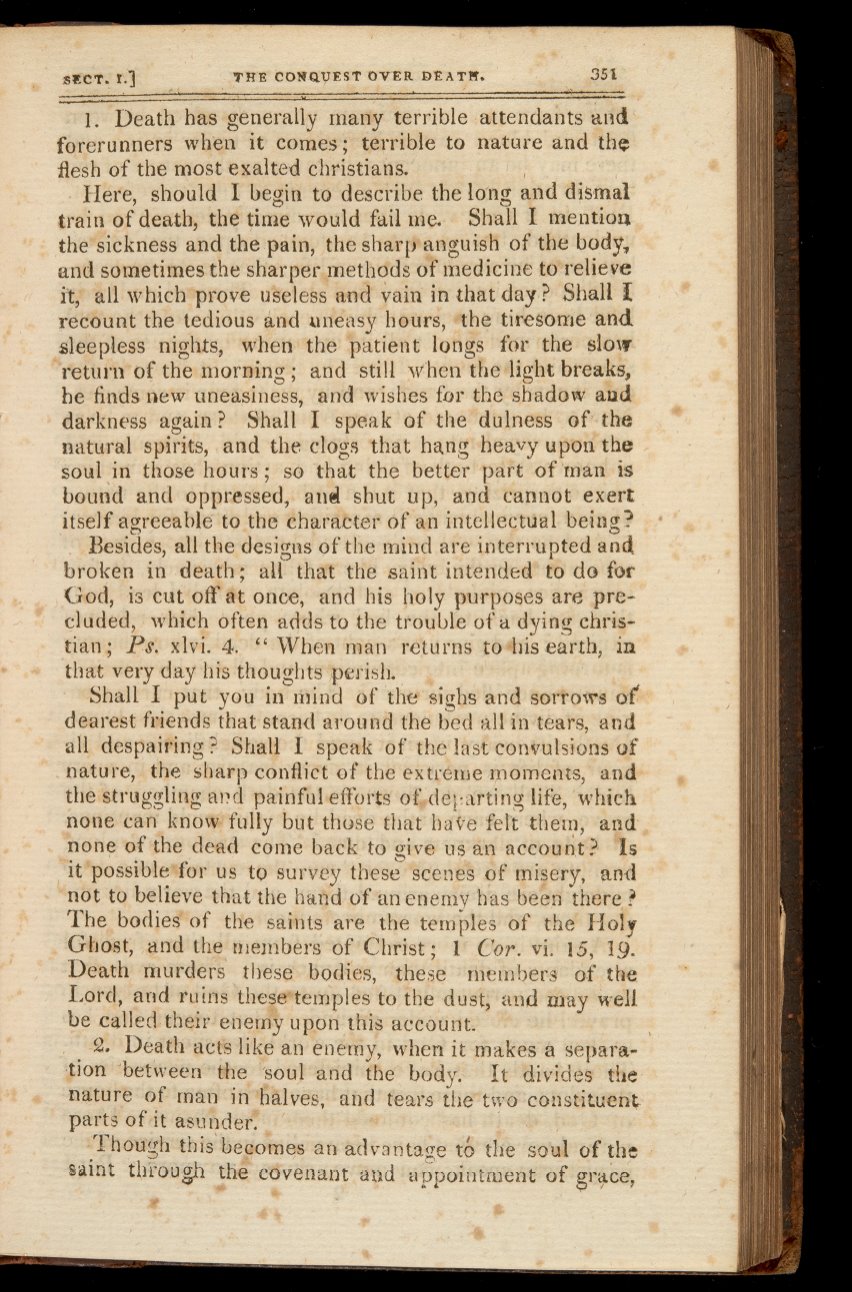

SECT. I.1
THE
COMOVEST
OVER DEATH.
351
1.
Death
has generally many
terrible attendants and
forerunners
when
it
comes
;
terrible
to
nature
and the
flesh
of
the most
exalted
christians.
Here, should
I
begin
to describe
the
long
and dismal
train of
death, the time would
fail
me.
Shall
I mention
the sickness
and the pain, the sharp anguish
of
the
body,
and sometimes the
sharper
methods
of
medicine
to
relieve
it, all which prove useless
and
vain in
that
day
?
Shall
f
recount
the tedious and uneasy hours, the tiresome
and.
sleepless nights,
when
the
patient
longs
for the
slow
return of
the
morning
;
and
still
when the light breaks,
he
finds
new
uneasiness, and
wishes
for
the
shadow
and
darkness
again?
Shall
I speak
of
the dulness
of
the
natural
spirits,
and the
clogs
that
hang heavy upon
the
soul
in
those hours
;
so
that
the
better part
of
man
is
bound
and oppressed,
ansl
shut
up,
and cannot
exert
itself
agreeable
to
the
character of
an
intellectual being?
Besides, all
the designs
of the
mind
are
interrupted
and
broken
in
death;
all
that the saint intended
to
do for
God,
is
cut
off
at
once,
and
his
holy
purposes are pre-
cluded,
which
often adds
to
the
trouble
of
a
dying
chris-
tian;
Ps.
xlvi.
4.
"
When
man
returns
to4iis
earth,
in
that
very
day
his
thoughts
perish.
Shall
I
put
you
in
mind
of
the
sighs
and
sorrows of
dearest
friends
that stand around
the bed
all in
tears,
and
all
despairing
?
Shall
I
speak
of
the last convulsions
of
nature,
the sharp conflict
of
the
extreme moments, and
the struggling
and painful efforts
of
departing
life,
which
none
can
know fully
but those
that
have
felt them,
and
none
of
the
dead come back
to give
us
an
account?
Is
it possible
for
us
to survey these scenes
of
misery,
and
not
to believe
that
the
hand
of
an enemy has been
there
?
The
bodies of
the
saints
are
the temples
of
the Holy
Ghost, and
the members
of Christ
;
1
cor.
vi. 15,
19.
Death murders
these
bodies, these
members of
the
Lord, and ruins
these temples
to
the dust,
and
may well
be called
their enemy upon this account.
Q.
Death
acts like
an enemy, when
it makes
a
separa-
tion 'between the
'soul
and
the body.
It
divides the
nature of
man in halves,
and tears the
two
constituent
parts
of
it
asunder.
Though
this
becomes an
advantage
tó
the soul
of
the
saint through the
covenant
and
appointment
of
guráce,

















